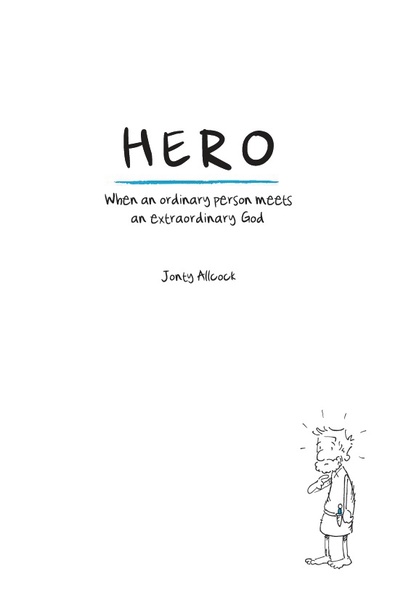Many Christians today believe that Jesus’ second coming will happen in phases. According to this view, Jesus will first come unexpectedly and invisibly in order to gather believers out of the world, and then come again later in the visible, awesome way described here in Matthew 24. This prior coming is sometimes called the “secret rapture.” It’s secret because the world won’t see Jesus at this event and won’t have any warning of his coming. And it’s a “rapture,” which means that Christians will be “caught up” out of this world to be with Jesus. However, we should remember that “rapture” is not a word found in the Bible.
At the secret rapture, all the Christians will mysteriously vanish from the world and those who are left behind will suffer the terrible judgments and tribulations described in the book of Revelation. The period between the secret rapture and the visible return of Jesus is often referred to in this view as “the tribulation.”
... continue reading
In this extract from How will the world End? Author Jeramie Rinne helps us see why this is a confusing question for many Christians, and how we can get a proper perspective on things.
Where were you when you first realized the world might end? I was a pre-teen, at home, watching television.
I happened upon a program that dramatized what the Bible said would occur in the “end times.” Terrifying images crossed the screen: warfare, natural disasters, and, of course, grainy footage of atomic mushroom clouds. I can’t remember what the show taught exactly, but I do remember that it scared me.
My next brush with the apocalypse (end of the world) came as a teenager in a church youth group. We saw a film entitled A Thief in the Night. In it an unfortunate young woman ignores her family and friends who urge her to follow Jesus. Suddenly the true believers are whisked away in a secret “rapture” up to heaven, leaving her to face the horrific global tribulation (period of suffering) of the last days. On the one hand, the film stoked my curiosity. What would it be like if millions of people disappeared all at once? But the film also made me nervous. Would I be one of the people who gets beamed up by Jesus before the world goes to pieces, or would I be left behind?
And then there was my youth leader. During a Sunday-school class he explained the biblical teaching about the end of the world using a time line. Actually, it looked more like an electrical-wiring diagram. There were arrows and boxes and symbols all mapping out a complex cascade of final events, like the rapture, the seven-year tribulation, the millennium and the white-throne judgment.
He introduced me to characters from the book of Revelation like the beast and his sidekick, the false prophet, both of whom would serve the dragon by presiding over a one-world government that somehow featured Europe, Russia and China quite prominently. This was after the beast was assassinated and then miraculously revived thee-and-a-half years into the tribulation, of course.
Like A Thief in the Night, that teaching had a contradictory effect on me. At one level, it intrigued me. It was like learning a top-secret code that suggested I could decipher the true meaning of current events. But the explanations and charts also confused me with their sheer complexity. Furthermore, how exactly did my youth leader see those things in the Bible? The book of Revelation mystified me, but somehow he could make perfectly good sense of its apocalyptic visions. And on top of it all, that sense of dread and foreboding still seemed to haunt any discussion of the world’s grand finale.
... continue reading

There is no global shortage of doomsayers. We are being told that we are only decades, years, months, days away from catastrophe by global warming, ecological disaster, viral pandemics, major terrorist atrocities or a meteor strike. The scenario changes, but the end result is the same - the end of the world as we know it. So confident are these pundits that they are correct, it's a surprise that we haven't all stopped paying into our pensions years ago.
But Christians have a far more positive view of the future - one in which justice will be finally done, Jesus revealed for who he is, his persecuted people vindicated, and the re-creation of a glorious new world for those who have been saved by him.
But there remains considerable confusion among Christians about what will happen at the end of the world, and how it will come about. Not to mention the dreaded "when?" question!
We've been embarrassed by Christians claiming to know when Jesus will return. We've been bamboozled by other voices that weave complex scenarios from the Bible about how it will happen. No surprise then, that many Christians think of the end of the world, and those parts of the BIble that talk about it as "no go areas". How do we make sense of all this confusion.
We're delighted to be publishing Questions Christians Ask series. With trademark clarity and care, this little book seeks to help ordinary believers sort out fact from fiction in the end-times scenarios on offer. Author Jeramie Rinne focuses our minds on the big things about the second coming of Christ that all Christians agree on, and helpfully charts a path through the confusing landscape of different views Christians hold about the way the end will arrive.
How will the world end? is part of the Questions Christians Ask series, available to order HERE from your friendly neighbourhood Good Book website.
© Image : Michael Lehenbauer, Flickr, used under the CC license
In this extract his new book, published today, Barry Cooper grapples with the question of how the Bible can be culturally relevant today…
The past often embarrasses us. Looking at photos of myself growing up in the 1980s, it’s one fashion car-crash after another. It’s impossible to look away. Why didn’t people spend the entire decade pointing at each other and laughing? The reason, I suppose, is that more or less everyone was dressed the same. It seemed normal to us. We’d built up a plausibility structure of pastel t-shirts, neon socks and snow-washed jeans.
Isn’t it the same when we look at the Bible? It reflects the attitudes of a particular time and place in history. It seemed ok to everyone at the time, but now those attitudes appear regressive and embarrassing. We look back and we say to ourselves: “What were they thinking? I’m glad we know better”.... continue reading
In this extract his new book, Barry Cooper grapples with the question of why the words of the Bible really matter…
Isn’t it silly to claim that something as commonplace as a book actually contains God’s words? If God really is God, couldn’t he communicate with human beings in a less run-of-the-mill way?
He certainly could. The Bible itself gives plenty of examples: God speaks to people by means of dreams, visions, angels—even, on one significant occasion, from a burning bush. He also “speaks” to individuals by means of their consciences (Romans 2 v 15); by hard-wiring us with a deep inner hunger for him (Ecclesiastes 3 v 11); even by determining where and when in history we live (Acts 17 v 26-27). God constantly “speaks” to us of his goodness by providing for us, regardless of whether we love him or not (Matthew 5 v 45; Acts 14 v 17). And he still guides his people by means of his Holy Spirit.... continue reading
Christians are Bible people.
It's a book we listen to. It's a book we love. It's where we find out about Jesus and the good news of his saving work. It's where we discover the history of the world, and our place in it.
But that doesn't stop us having questions about it. Just how does it work that a book written by scores of people over a thousand year span can claim to be literally the very words of God?
And at a time when the central ideas of Scripture are more and more out of step with the spirit of the age, we are tempted to doubt the Bible as reliable and trustworthy.
That's why I'm delighted that Barry Cooper has written Can I really trust the Bible? - the latest in our Questions Christians Ask series. Barry uses a simple example to ask some key questions about the Bible. If you see what looks to be a jar of honey on a shelf - how do you know that it is genuinely honey inside? Three simple steps:... continue reading

The wayward prodigal son, the weak character of Gideon - not likely role-models at first glance! But they were people who came to realise the most important fact any human can ever grasp: they realised they needed God.
Aimed at teens, but accessible to all, these two books offer easy-to-read glimpses into these fallible characters and help us unpack the ways in which their stories can inspire us in the 21st century.
Get the ebooks today at the great price of just £1 each (that's over 65% off!). Simply use code lh0614 at the checkout.

For 24 years Romania was under the Ceausescu regime, with a strong communist influence the government made efforts to undermine religious teaching and faith. As a result, there is a huge lack of biblical knowledge as well as people being suspicious of the motives of evangelical churches because of the spiritual vacuum created by the Communist regime. However the people in Romania are in a continuous search of spiritual fulfilment today and the hunger for the Word of God continues, but the means to guide people towards a sound theological understanding are very poor." So reflects Dinu Moga, General Director of Faclia House Publishing - a company whose work is focused on equipping Romanian church workers to do ministry biblically and faithfully.
The situation in Romania is challenging but also full of opportunity which is why we are delighted that Faclia House have partnered with Christianity Explored and The Good Book Company in the production of Explorari in Crestinism (that's Christianity Explored in Romanian to you and me).
So far, both the Christianity Explored course handbook and leader's guide, and the book, "One life, What's it all about?" have been translated. Work on Discipleship Explored is well under way ...and Soul (the Christianity Explored course for young people) is next in line.
Please do pray with us that the launch of this new translation will bear much fruit in the Kingdom and that God's people in that land will be built up as they focus afresh on the wonderful truths set out in the Gospel of Mark.
And if you happen to have contacts in Romania, do please forward on this link, so those on the ground can browse these new and exciting products for themselves ...
What are we to do with the gospel? In Titus 3:8 Paul says: “Stress these things”. We are to stress the gospel that he’s just outlined. We can never talk about the gospel too much. We need never move on from it or move away from it. Stressing these gospel things to our own hearts and to our church family is what we and they most need.
On the other hand, we’re to avoid what is unprofitable and useless: “Foolish controversies and genealogies and arguments and quarrels about the law” (v 9). Stress and avoid—these are the two guidelines of verses 8-9. Stress the gospel and avoid controversies. We stress the gospel because it is excellent and profitable, and we avoid controversies because they are unprofitable and useless.
You would not think that was a difficult or contentious thing to say. But the reality is that all too often in church life, we stress controversy and avoid talking about the gospel. It may be true that our preaching stresses the gospel. But our conversations so often stress controversy. The letters and emails that people write stress controversy. The points that people raise stress controversy. We agree on the kindness of the Father, the renewal of the Spirit, the grace of the Son and the hope of eternal life. And these things are excellent and profitable. But we put our energy into controversies, arguments and quarrels. We do this even though Paul says such things are unprofitable and useless. In other words, they are a waste of time and energy.... continue reading